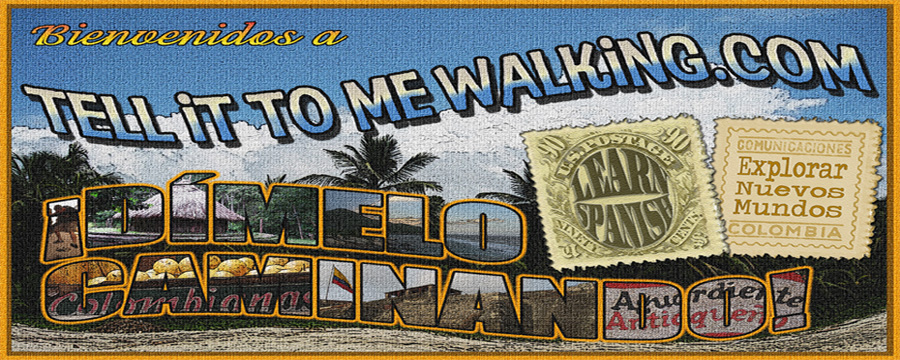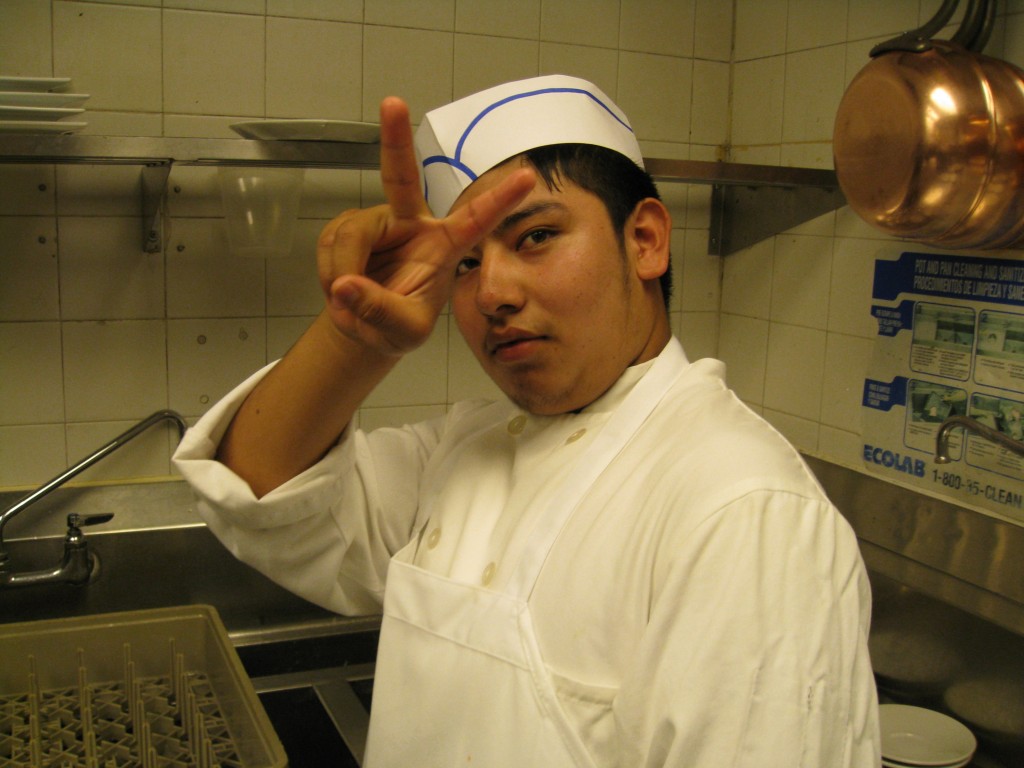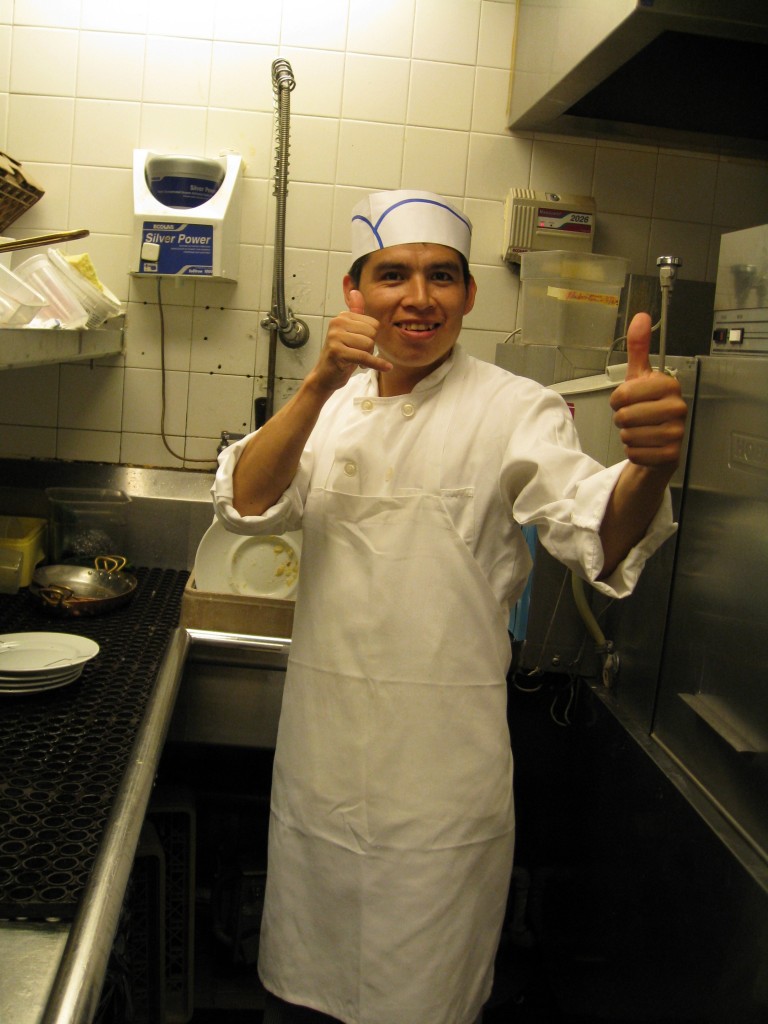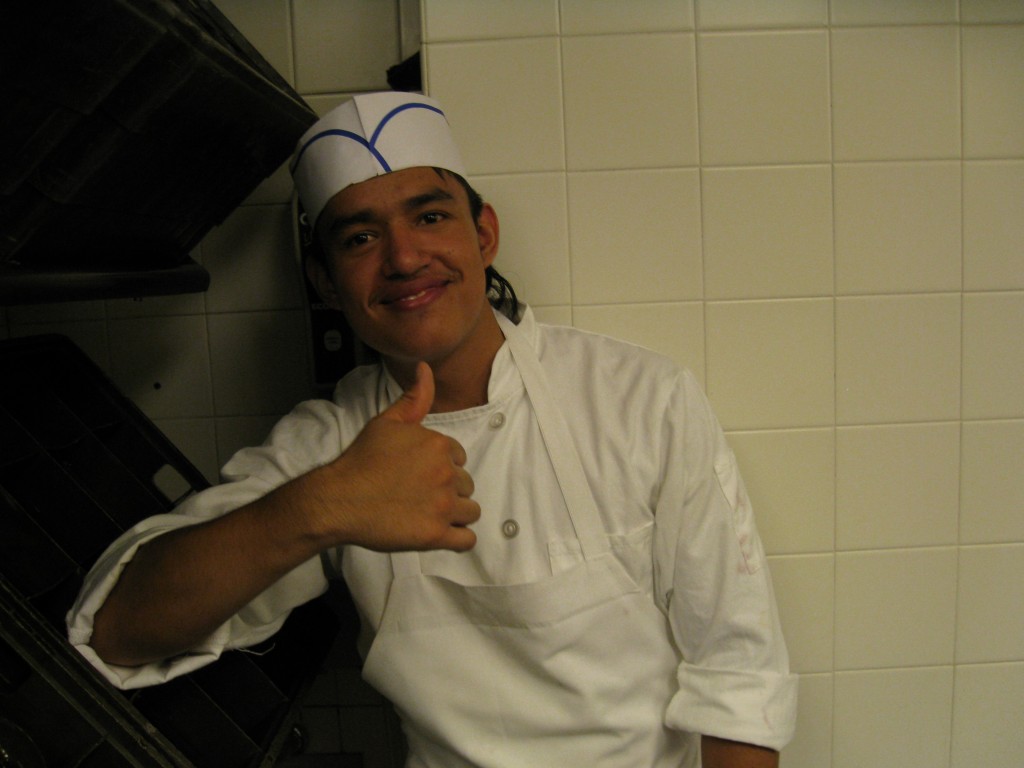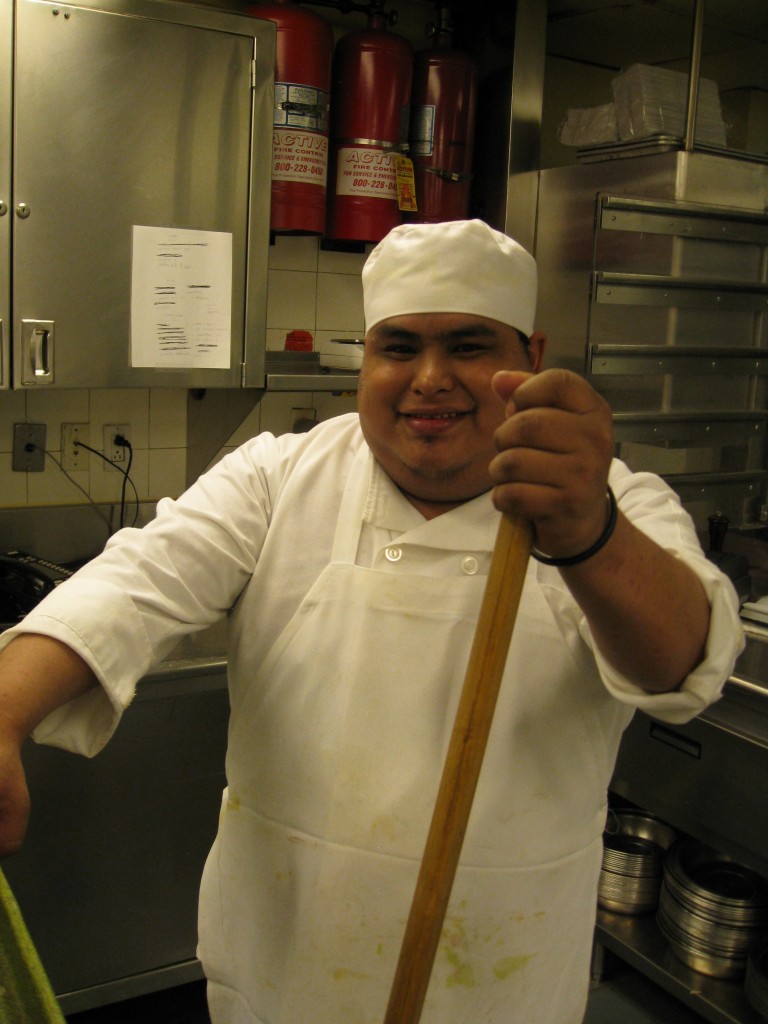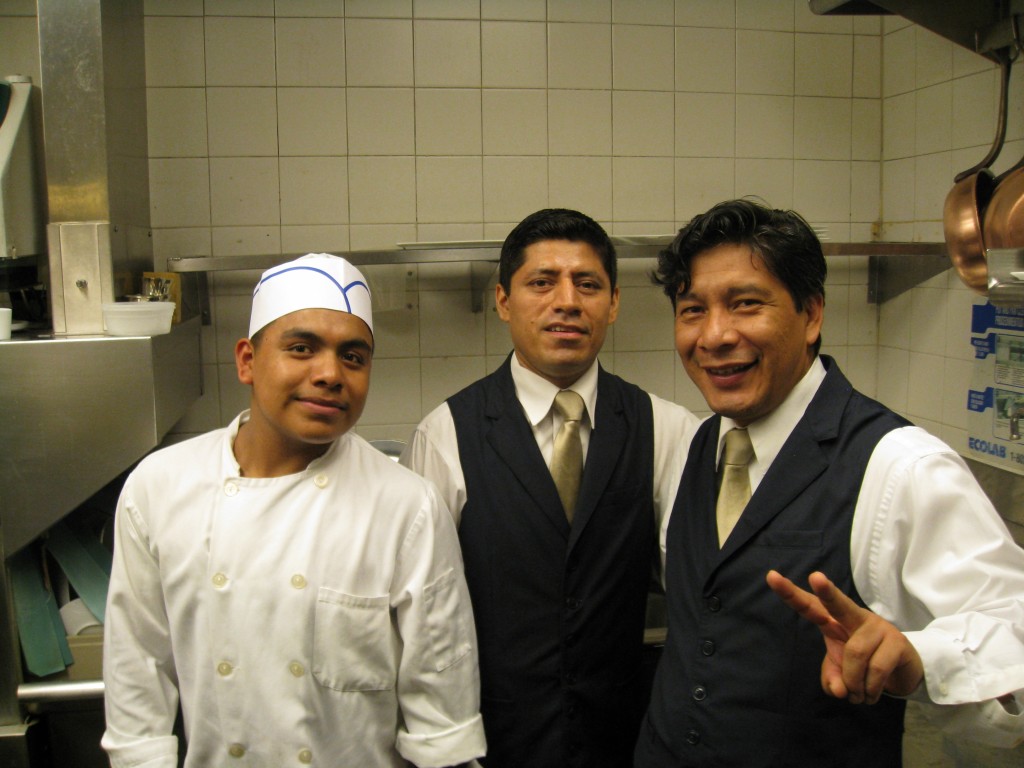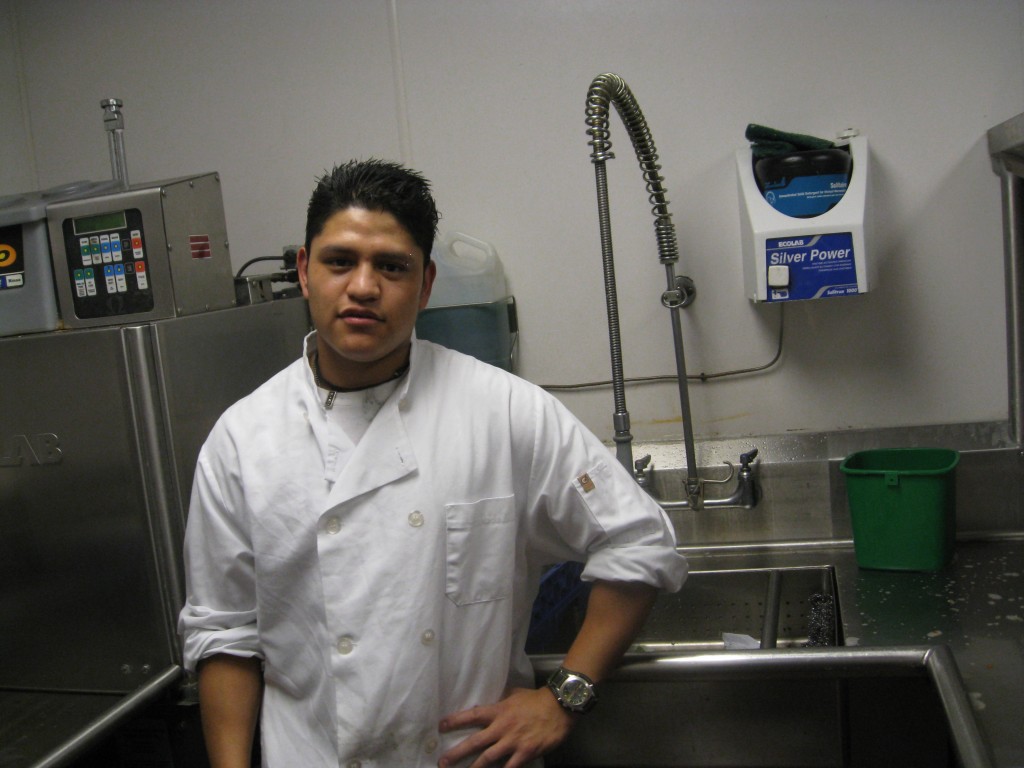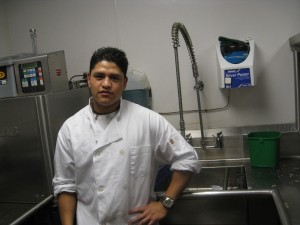“Who’s more indispensable during the Saturday night dinner rush: the French chef or the Mexican dishwasher?”
“The dishwasher. We can make it through the night without the chef. If the dishwasher doesn’t show up, we’re doomed. “
– Anthony Bourdain.
“The limits of my language are the limits of my universe” – Austrian Philosopher, Ludwig Wittgenstein
————————————————————————————————————————-
Flashback: I’m 21 years old. First day on the job. Wine bar. I’m the new busboy.
“Aaaaaaaaaachooooooooooooooooooooooooo!” I let out a massive sneeze.
I must be allergic to something in this kitchen, I say to myself. Man, that’s like the fifth sneeze in less than 5 minutes.
I then hear a voice from the dish pit.
It’s Paulino, I learn, the man responsible for making those plates shine bright.
He’s also known as “Pavis” the dishwasher, el lavaplatos, el carnal who will become my comrade in arms, my right hand man in the battle of suds and supper, platos and personas.
Nosotros against them.
“Sancho, guey!” he yells out to me.
“Sancho, huh, that must mean ‘bless you,’” I say to myself.
“Gracias,” I call back to him.
He immediately breaks into laughter.
Then the line cooks chime in, also Mexicanos, and they’re all crackin’ up.
There the show begins:
“¡Oye! Mi cuñado, ¿qué tranza? ¿Qué onda?” Yells Vincente from the pick-up window.
“¿Dónde está mi café wey?” Ricardo adds.
¿Tienes una hermana, wey? Luis asks me, ”¿Es mama chula, ¿sí o no?”
“¿Dónde están las fotos, wey?” ¡Ya muestra carnal! He finally exclaims, slapping his spatula against a steamy pile of potato pureé.
¿Qué? ¿Qué? ¿Qué? I ask desperately searching for meaning, while exhausting just about every word in my spanish lexicon.
For real though, what the hell, I say, what the hell are these cats saying to me right now?
I’m desperate, can someone please, please, please ayudarme with a little spanish 101? A dictionary? A translator or something?
And then I realize there in the musky depths of the restaurant dish pit that for the first time in my life I have finally been confronted by a language barrier, THE dreaded language-barrier.
I then ask myself: how was it that in all of my 21 years of existence I’ve never had the need or really the desire to speak a foreign language, and Spanish at that?
According to the Instituto Cervantes, a public institution with the goal of promoting Spanish and all it’s co-official languages, it is estimated that the combined total number of Spanish Speakers in the world is between 470 and 500 million.
Furthermore, a 2010 U.S Census bureau report states that the hispanic population of the U.S ranks as high as 50.5 million, making people of hispanic origin in the U.S. the nation’s largest ethnic or race minority.
And among those people, how many do you guess speak Spanish as a first language?
Right now this band of Mexicano line cooks and dishwashers has got me stuck, the humble busboy, without a palabra to say.
I’m the butt of a cruel joke, and I’m stewing, so it feels, in my own ignorance.
Not to mention something isn’t right here. Some things go beyond words. Call it a feeling, a notion, and inkling, but I could have sworn that they had just said something about…
my…
mama.
And that ish don’t fly, guey.
As I see it there’s only one solution: I have to cross over. I have to cross the language barrier. I have to learn how to avenge the honor and glory of my dear mother and my precious little sisters – in a foreign tongue.
A huevo!
First come the “las groserías,” the vulgarities, the curse words. My Mexican colleagues teach me verbs, nouns and expressions to the likes of:
“chingar” (to fuck)
“pinche,” (literally means something along the lines of “puncture, ” but in the context of kitchen spanish, it functions as an adverb used to modify and strengthen different adjectives. Think of it as basically meaning “fucking,“ as in “este pinche wey – this fucking guy…)
“chupar” (to suck)
“mamar” (synonym for “to suck”)
“¡no mames!” (literally “don’t suck,” but is a common expression used similarly to mean “don’t mess around,” “quit playing,” or “no way”)
“Pendejo” (essentially, “asshole”)
“Verga” (penis, dick, unit, member, johnson).
“carnal” (brother, friend, homie)
And let us not forget about the almighty “huevo.” (literally means egg, but depending on the context can mean “testicles, male genitals, balls, etc, but there are hundreds of different variations.)
I quickly learn that one the most popular variations is “guey” or “huey” (or “wey,” as I’ve seen it spelled), the first syllable of “huevo,” a contraction used commonly to refer to a “dude,” “guy” or “man.”
For example, one might say, ¿Quién es este guey?, meaning who is this dude, guy, man, etc.
When it comes to “huevo,” los mexicanos, to say the least, are very creative.
After a little bit of practice and some explaining from some of my bilingual co-workers, I later learn why they were laughing at me in the first place.
“Sancho,” in Mexican Spanish, does not nearly mean anything close to “bless you.” Although it is said when someone sneezes, really it means to say that in that very moment of sneezing, someone — could be a stranger, could be your best friend — is hooking up with your girlfriend, wife, or significant other.
This is used among friends jokingly of course, but what, I say ¡¡¡WHAT PENDEJOS!!!
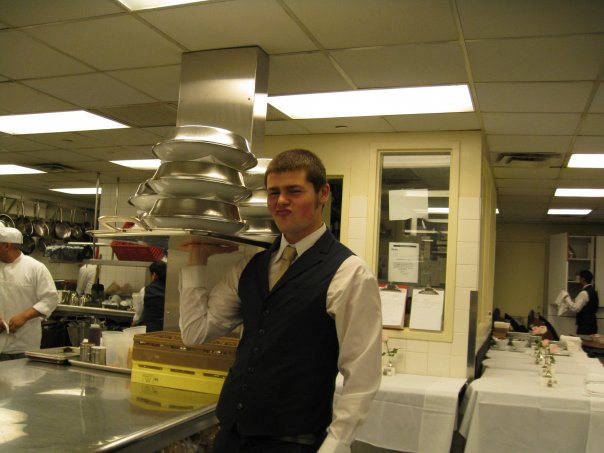
Soy yo, yours truly, un poco más peladito, recién llegado en la City so nice they named it twice, trabajando en el Jean-George con mi equipo mexicano.
This was my first real introduction to the Spanish language, and Mexican Spanish at that, of the Poblano variety, so rich with rhythm, consonants and vowels, feminine and masculine nouns, regional words, color, and, of course, one million and one ways to insult your mother.
Over time, terms such as these became the lexical backbone to my beginners knowledge of Spanish.
Or rather, my own “kitchen Spanish“ also known as “kitchen Españglés” or “Kitchen Spanglish,” a multi-varied and oh so vulgar mode of communication composed of restaurant industry specific vocabulary fused with North American English and Spanish loan words.
Within kitchen Spanish, you see, you begin with base terms heard on the line such as “all day,” a noun used mainly by the chef or expeditor to request a run-down of all food orders (Can I get an “all day” on the line?).
And there’s “86” or “86’d” a phrase originally used, so I’ve heard, to refer to “80 miles out and 6 feet under,” meaning to get rid of, eliminate, or kill someone, first, by having that someone dig their own grave 80 miles from civilization, then having that someone shot execution style and buried 6 feet underground.
“86” can have the function of a verb (86 that shit off the menu!), or can be used adjectivally (The trout was 86’d a long time ago, meaning that that item, in our case the trout, has been removed temporarily from the menu and is no longer available to be sold or served).
And of course, there’s the classic “fire” or “order fire,” another term used by the chef in command, ordering his line cooks to begin preparation of a certain order (Order fire: trout!)
Pepper these terms with las groserías and the rapid-fire speech of a Mexicano stuck behind a hot pan and a grease trap and you get combinations such as “está 86’d pinche wey,” a construction with the Spanish verb “estar,” (to be).
And “all day” becomes “un todo el día,” and the noun for fire in Spanish, “fuego,” becomes a verb (fuego el trout), among many others.
With all the practice I was getting working side by side with Spanish speakers, I quickly became an expert in kitchen Spanglish.
I could insult your mother (It is not recommended, however, that you insult a Mexican’s mother. You’ve been warned). I could get creative with “huevo,” roll my tongue and trill my double rr’s. I could even call back orders, and at times would have to translate for those who weren’t so well versed in the ever so inventive and vulgar language spoken on the outside of the dining room and in the kitchen.
But in the end, could I have a basic conversation in Spanish?
No, not really.
I could barely ask “¿Cómo estás?” without throwing some sort of vulgar twist involving your sister and eggs.
But what I did know was that somewhere within this bizarre kitchen sub-culture, this strange multilingual and multicultural mix of English and Spanish, gringo chefs, Mexican Dishwashers and line cooks working together in the underbelly of the restaurant world a deep interest was being awoken in me — a curiosity very similar to that found years earlier in the street language and lyrics of the Wu-Tang Clan and my other favorite rappers and emcee’s.
It was then that this curiosity would push into motion the beginnings of a very long journey…
First, it would lead me to uproot myself and start anew in the county of Kings, the city so nice they named it twice, the concrete jungle, the greatest of all 5 boroughs in New York City — Brooklyn — where I would make my new home and go on to take my very first ever “official” Spanish class at Brooklyn College of the City University of New York.
It would then lead me to read books, to discover ancient tales of Roman soldiers and conquests of the Iberian Peninsula, to learn the histories of kings and queens and the Kingdom’s in Spain, of Islamic invasions and wars over vast lands and religious beliefs.
To become familiar with a dialect, a vulgar dialect of Latin called Castilian, one backed by the force of an army and a king called Alfonso X; a dialect that would become standard through literary, scientific and historical cultivation; would become the most widely spoken throughout the various kingdoms of Spain; the official language of a vast and diverse peninsula.
To read accounts written by conquistadors and Cristóbal Colón, the grand sea captain who dared to cross an ocean in 3 ships in search of a mythical sea passage to India; the same man who, along with soldiers, settlers, colonial administrators and priests, would be the first European to bring this dialect to the “new world,” scattering Castilian among two different continents.
To learn about great civilizations, immense civilizations that spanned the length of a continent, along the spine of the Andes, through rain forests, deserts and mountains; civilizations of the Maya, Aztec and Inca peoples, among thousands of others, who would have to confront those newly arrived on their lands, who would wage war with Spanish conquistadors, colonizers in search of riches and gold.
To learn of immense African kingdoms plundered of their people by slave traders, taken across the ocean bound in chains, brought to a place far different from there own, forced to adapt, to change, to become apart of this “new world.”
To learn about and discover what became an immense clash of old and distinct cultures, each with there own unique ways of life, art, music, beliefs, religions, that would go on to form new and different cultures, hybrid cultures distinctly of Indian, European and African roots; cultures that today inhabit the lands and countries of Latin America, a world beyond rich with life and diversity, nature, art, identity and intrigue….
It was the decision to start studying spanish almost 4 years ago that would bring me here to this moment, writing to you from the Andean Highlands of Ecuador, after having spent more than 8 months traveling, living, working, playing, and immersing myself in the Colombian and Ecuadorian worlds.
It is here where a dream given to me by the grandmother I never knew, a dream of experiencing a larger world, is met by a love for photography and language and movement first found in the street dialects and energy of Hip Hop music, then given new thrust by the borough of Brooklyn, New York City and mis Mexicano dishwashers.
It is here where TellittomeWalking.com is born.
And although this has all just barely begun, I owe everything to my mexicano dishwashers, mis carnales locos, who first dared to insult my mother in their native tongue
When did you first discover the power of a foreign language? How did it come to you?
Better question: where has it taken you?
